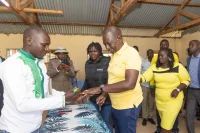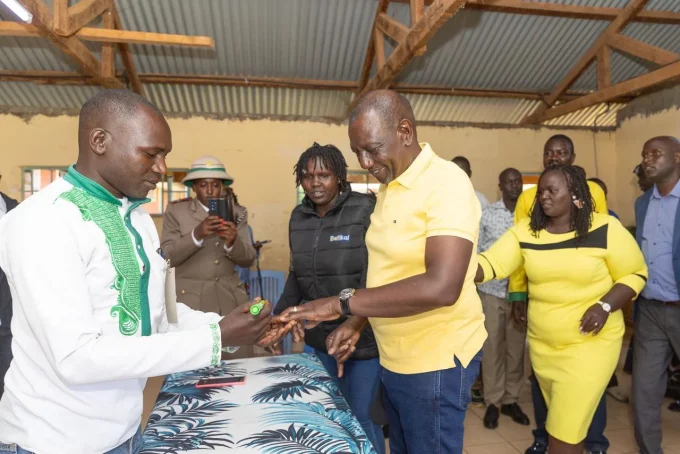Consumer goods manufacturer Unilever has registered success in implementing its ambitious sustainable living programme in Kenya, which aims at increasing the use of renewable energy and giving nearly half a million farmers access to the export markets.
Unilever Chief Operating Officer Harish Manwani, who was in Kenya on a two-day tour last week, said the company was exploring more sustainable ways of doing businesses in the country.
“We believe that sustainability isn’t just about the environment,” Manwani said of the programme that was launched globally in 2010.
“There is a social and economic dimension. Our products can make a big difference to people’s health and well-being and our supply chain supports the livelihoods of millions of people.”
He said responsible growth means also broadening access and participation in supply chain, adding that its goal is to link 500,000 smallholder farmers into our supply network. This will help improve their agricultural practices and enable them to supply into global markets at competitive prices.
“By doing so, we will improve the quality of their livelihoods as well as diversify the reach of our supply chain,” he said. He said Unilever Tea Kenya had worked with the Kenya Tea Development Authority (KTDA) and other stakeholders to register farmers and help them to be audited and certified by the Rain Forest Alliance.
“The company hence embarked on preparing the outgrower farms for the audit to allow for marketing of their produce along with that of Unilever Tea,” he said. “The project has increased sales of certified smallholder teas to Unilever as well as improved both productivity and earnings for the farmer.”
He said the demand for electric energy in Kenya has been increasing over the years, stretching supply at peak consumption. The national utility firm uses diesel generators to meet this demand, which resulted not only in higher costs but also increased the carbon footprint.
“To mitigate these challenges, Unilever Tea Kenya in 2010 initiated the Tagabi Hydro II Project to realise its ambition of being 100 percent self sustainable in energy,” he said.
The project, located in Kericho and which cost 820,000 euros (Ksh85 million at current rates), has increased the company’s self- efficiency in energy from a previous average of 68 percent to 95 percent.
This drive towards self reliance on energy has enhanced the business operations in a number of ways.
“Hydro electricity is particularly sustainable in this region of the country which is well endowed with rivers flowing throughout the year,” he added.
“This energy has directly replaced purchased power from the national utility of which 47 percent is generated from non-sustainable thermal means.”
As a result, the company has had a global impact of reducing its carbon footprint by more than 1,586 tonnes of carbon dioxide per year, according to the International Carbon Bank and Exchange CO2 converter.
Manwani’s visit comes after the company’s global CEO Paul Polman visited East Africa, including Kenya, in April and expressed confidence in the local economy. He reiterated Africa’s focal position and the pace of growth and changes that are taking place on the continent.
He said the new frontier of the next 20 years is Africa and will shape the growth of Unilever’s business.
Mr Manwani said the Unilever Sustainable Living plan is working on a number of projects company-wide, including rainwater harvesting, recycling waster, conserving the Mau forest and empowering the community economically.
The writer is a Communication and Journalism student at Moi University.
















































![Pula Co-Founders and Co-CEOs, Rose Goslinga & Thomas Njeru. Pula provides agricultural insurance and digital products to help smallholder farmers manage climate risks, improve farming practices and increase their incomes. [ Photo / Courtesy ]](https://businesstoday.co.ke/wp-content/uploads/2021/01/Pula-Co-Founders-and-Co-CEOs-Thomas-Njeru-Rose-Goslinga.jpg)




























































Leave a comment